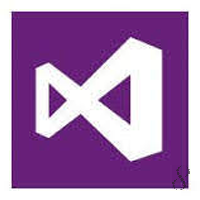Troubleshooting Problems Opening DSP Files
Common DSP Opening Problems
ModPlug Player Removed
Double-clicking your DSP file prompts the message "%%os%% Can't Open DSP File". Generally, this is experienced in %%os%% because ModPlug Player isn't installed on your PC. Because your operating system doesn't know what to do with this file, you won't be able to open it by double-clicking.
Tip: When you have another program installed that you know will open your DSP, you can select it from the other programs listed (see "Show Apps").
Obsolete Version of ModPlug Player
It is possible that your version of ModPlug Player isn't able to open your Dynamic Studio Professional Module file due to incompatibility. You will need to download a newer version of ModPlug Player if you don't have the right version. This issue mainly occurs when your Dynamic Studio Professional Module file was created by a newer version of ModPlug Player than you have on your PC.
Tip: Sometimes you can get a clue about the version of DSP file you have by right clicking on the file, then clicking on "Properties" (Windows) or "Get Info" (Mac OSX).
Primarily, problems experienced when opening DSP files are due to having the incorrect version of ModPlug Player installed on your computer.
More Causes of Problems Opening DSPs
Errors opening Dynamic Studio Professional Module files can still occur even with the latest ModPlug Player software installed on your computer. There can be external issues inside of %%os%% that are causing these errors when opening DSPs. Other contributing causes:
- DSP file references in the Windows Registry are broken
- Corruption of the DSP file description inside the Registry
- Corrupt install of ModPlug Player or other DSP-related program
- DSP file corruption
- DSP file integrity has been compromised by malware
- Hardware associated with DSP has outdated drivers
- Windows has inadequate resources to open your Dynamic Studio Professional Module file
Quiz: Which file extension is an archive file?

That's Correct!
A SIT file was created by Smith Micro Systems for use with the Macintosh operating system. Now, it is considered "cross-platform", working on multiple operating systems including Windows, Macintosh, Android, iOS, and others.
Close, but not quite...
A SIT file was created by Smith Micro Systems for use with the Macintosh operating system. Now, it is considered "cross-platform", working on multiple operating systems including Windows, Macintosh, Android, iOS, and others.



















